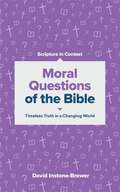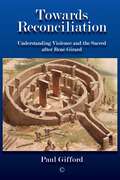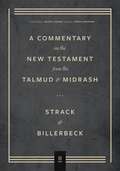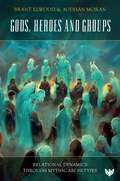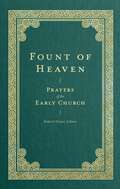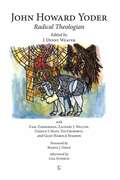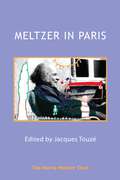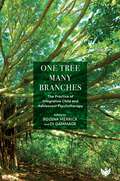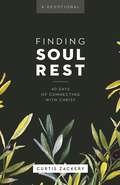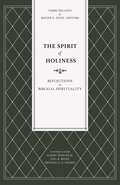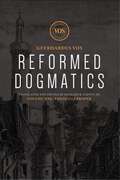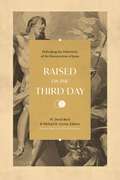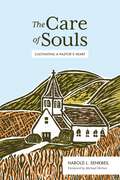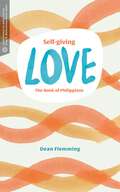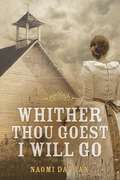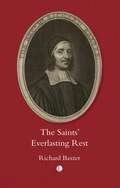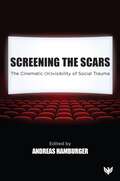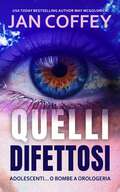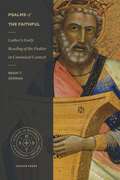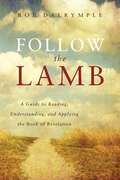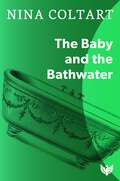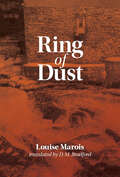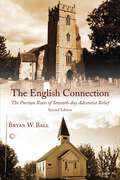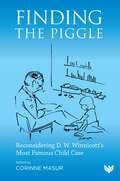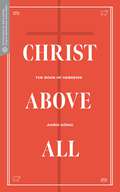- Table View
- List View
Moral Questions of the Bible: Timeless Truth in a Changing World (Scripture in Context Series)
by David Instone-BrewerAre all the moral commands of the Bible meant to be obeyed exactly for all time, or are there some that need to be adapted for our modern world? Scripture contains lots of guidance on ethical issues, including statements about polygamy, slavery, divorce, sex, and other things that sound strange to our modern ears. Even Christians, who believe the Bible is God's word, disagree on whether women should wear head coverings, whether Christians can ever lie, whether women should preach, and whether Christians should drink alcohol. How can we resolve these issues and figure out how to apply the Bible to our lives? David Instone-Brewer helps answer this question by showing how the Bible's moral commands were understood in their ancient cultural context. The more we understand what God and the biblical authors intended to communicate to the original audience, the better we will be able to make sense of how to apply those commands today. In brief chapters that address a wide variety of moral issues, Instone-Brewer equips Bible readers with a paradigm they can use to discern matters for themselves: Is a biblical command timeless or time-bound? If the command itself is time-bound, what is the timeless purpose behind it? And how do we remain faithful to the Bible's commands today even when handling subjects the Bible does not address? The Scripture in Context series is driven by the conviction that there is nothing as exciting, direct, provocative, and spiritually enlightening as the Bible when we read it as it was meant to be read. Each book in the series dives into the ancient cultural context behind Bible passages, examining the effect this context had on what the Bible writers were saying and how we should understand their words today. When we read the Bible in light of its context, it is anything but boring. Instead, God's word can speak to us as powerfully as it did to those who first read it. Chapters are short and informal, so it's easy to read one chapter at a time or the whole book straight through.
Towards Reconciliation: Understanding Violence and the sacred after Rene Girard
by Paul GiffordWhy do humans sacralise the causes for which they fight? Who will decipher for us the enigma of 'sacred violence'? Paul Gifford shows that the culture theorist and fundamental anthropologist Rene Girard has in fact decoded the obscurely 'foundational' complicity between violence and the sacred, showing why it is everybody's problem and the Problem of Everybody. Rene Girard's mimetic theory, especially his neglected writings on biblical texts, can be read as an anthropological argument continuous with Darwin, shedding formidable new light to a vast array of dark and knotted things: from the functioning of the world's oldest temple to today's terrorist violence, from the Cross of Christ to the Good Friday Agreement, such insights illuminate superbly ('from below') the ways of creation, revelation, redemption - which is to say, ultimately, the Christian enterprise and vocation of Reconciliation. Here is a novel and exciting resource for scanning the hidden 'sacrificial' logic that still secretly shapes cultural, social, and political life today. Girard puts us ahead of the game in the key dialogues required if we are to avoid autogenerated apocalypses of human violence in the world of tomorrow.
Commentary on the New Testament from the Talmud and Midrash: Volume 3, Romans through Revelation
by Hermann Strack Paul BillerbeckVolume three contains an English translation of the commentary on Romans through Revelation. Hermann L. Strack and Paul Billerbeck's Commentary on the New Testament from the Talmud and Midrash is an important reference work for illustrating the concepts, theological background, and cultural assumptions of the New Testament. The commentary walks through each New Testament book verse by verse, referencing potentially illuminating passages from the Talmud and Midrash and providing easy access to the rich textual world of rabbinic material. Originally published between 1922 and 1928 as Kommentar zum Neuen Testament aus Talmud und Midrasch, Strack and Billerbeck's commentary has been unavailable in English until now. Translated by Joseph Longarino and edited by Jacob N. Cerone, this volume also includes an introduction by David Instone-Brewer.
Gods, Heroes and Groups: Relational Dynamics through Mythic Archetypes
by Brant Elwood Aodhan MoranWe are each a part of many different groups, teams, and organisations in our lives - this is unavoidable. Groups are powerful - we want to belong, and yet there is something dangerous about becoming too enmeshed with groups. We have painful historical examples to draw from, such as the Holocaust or the Salem Witch Trials. In today's Western culture, we are experiencing unprecedented groupthink, political radicalisation, and polarisation between groups. If we can learn to understand the currents and hidden dynamics within group life, we stand to benefit immensely. Not only might we gain on a personal level (better relationships, more effective leadership), but we may also become more influential in service to a better world. Gods, Heroes, and Groups helps readers conceptualise group dynamics in a deeper way and builds the creative muscle required for generating insight into how their groups operate. The methodology is somewhat novel, synthesising post-Jungian ideas about myth with modern theories of group psychology. Myths carry deep archetypal meaning that can 'decode' the unconscious elements in groups, which is especially powerful when combined with modern psychological frameworks. This type of thinking is a useful skill for executive coaches, facilitators, and therapists who work with groups or family systems, and for anyone looking to understand the effects of groups on the individual.
Fount of Heaven: Prayers of the Early Church (Prayers of the Church)
by Robert ElmerYou are the fountain of life, light, and all grace and truth The hearts of the first Christians beat with praise for Christ. The strength of their devotion is remarkable, considering the times of uncertainty and persecution in which they lived. Despite all of this, the early church flourished, sustained by the God to whom they prayed. Christians today have a lot to learn from the devotional life of the early church. In Fount of Heaven, a collection of carefully selected prayers from the first six centuries of the church, we can pray with our spiritual forefathers. Prayers from luminaries such as Clement of Rome, Irenaeus, and Augustine are arranged by theme to reveal the right prayer for the moment. The prayers have been slightly updated to read more easily, but they retain their joy and mystery. As we turn to the prayers of the first Christians, we can return to the foundations of our own faith.
John Howard Yoder: Radical Theologian
by J Denny Weaver'John Howard Yoder: Radical Theologian' shows that for John Howard Yoder both theology (in particular Christology) and ethics are expressions of the meaning of the narrative of Jesus. All such statements are relative to a particular context, so thattheology and ethics are subject to reaching back to the narrative in order to restate the meaning in new and ever-changing contexts. This methodology is visible in Yoder's 'Preface to Theology', which has been little used in most treatments of Yoder's thought. Yoder has been characterised as standing on Nicene orthodoxy, criticised for rejecting Nicene orthodoxy, called heterodox, and designated a postmodern thinker to be interpreted in terms of other such thinkers. None of these characterisations adequately locates the basis of his methodology in the narrative of Jesus. Thus 'John Howard Yoder: Radical Theologian' aims to go beyond or to supersede existing treatments with its demonstration that Yoder is a radical theologian in the historical meaning of radical - that is, as one who returns to the root - but also relates his theology to the personal accusations that clouded his later years. For Christian faith, this root is Christ. Parts II and III of the book explore the sources of Yoder's approach, and its application in several contemporary contexts.
Meltzer in Paris
by Jacques Touzé with Catherine Druon, Didier Houzel, Bianca Lechevalier, Ann Lévy, Antoine Mayer, Jeanne Pourrinet, and Rosella SandriThis book focuses on work with children undertaken by the GERPEN (Groupe d'Etudes et de Recherches Psychoanalytiques pour le developpement de l'Enfant et du Nourisson) of Caen and Paris. It is one of a series that record Donald Meltzer's clinical seminars and supervisions, which were conducted in various countries on a regular basis over many years. Despite his interest in the theoretical advances of psychoanalysis made during what he termed The Kleinian Development, Meltzer believed that clinical supervision was the only way to teach psychoanalytic practice. In effect, he treated supervision as an art form, just as he regarded psychoanalysis as an art form. The library of his supervision work, almost all recorded outside the UK, thus forms a valuable teaching model for future practitioners, as well as demonstrating Meltzer's wealth of insight into both character development and analytic technique.
One Tree, Many Branches: The Practice of Integrative Child and Adolescent Psychotherapy
by Bozena Merrick and Di GammageThe book includes contributions from Audrey Adeyemi, Tasha Bailey, Kelly Brackett, Jamie Butterworth, Alix Hearn, Evania Inward, Irene Mburu, Sasha Morphitis, Magda Raczynska, Nadja Rolli, Zisi Schleider, and Anna Tuttle. One Tree, Many Branches: The Practice of Integrative Child and Adolescent Psychotherapy celebrates the twentieth anniversary of the pioneering child and adolescent psychotherapy and counselling training organisation Terapia and the achievements of its trainees, tutors, and staff, who provide highly specialised counselling, psychotherapy, and bespoke mental health services for young people, children, parents, and families. Terapia works with individuals, organisations, schools, and the statutory and non-statutory sector and is a strong voice for child psychotherapy as a distinct and specialist profession. Therapeutic work with children requires a different set of skills and knowledge to that of adult psychotherapists. For example, much of the work is non-verbal and uses play and metaphor alongside talking. It also requires involvement with the system around the child, such as parents, families, and professionals, and the management of conflicting agendas and politics to act on behalf of the child. Subjects discussed within its pages include ecopsychotherapy, autism, the lack of male psychotherapists, working with refugees, racial trauma, female genital mutilation, working in closed communities, and foetal alcohol spectrum disorder. The book is essential reading for all who work with children and opens up exciting and pioneering new approaches for meeting the multifarious needs of our children and adolescents today.
Finding Soul Rest: 40 Days of Connecting with Christ: A Devotional
by Curtis ZackeryWhat does it mean to truly find rest? Jesus tells us that he "will give us rest." But what does that look like in a society marked by increasing rates of overcommitment and burnout? Too many of us have built unhealthy cycles of rest, striving and straining against God's intent for our lives. In Finding Soul Rest, Curtis Zackery provides a practical guide to finding the deep soul rest that Jesus promises. And it all centers around renewing and restoring our relationship with Christ. This thoughtful devotional on rest calls us to the intentional work of self-examination, helping us move toward a purposeful and sustainable life with Jesus. Through thoughtful reflections on Scripture and devotional questions, readers will rediscover their identity in rhythm with God.
The Spirit of Holiness: Reflections on Biblical Spirituality
by Terry Delaney Roger D. DukeWhat does Biblical spirituality look like? What does it mean to be "spiritual"? What priorities and practices inspire one to live the Christian life well? While there are a multitude of answers to these questions, very rarely are they both clear and profound. As a result, Christians can be left feeling lost and confused. In The Spirit of Holiness, Terry Delaney and Roger Duke have collected a variety of reflections on spirituality that are shaped by the Bible, theology, and the voices and examples of those who have come before us. With authors like Al Mohler, Michael Haykin, and Steve Lawson covering topics such as perseverance, depression, friendship, choice, and faith, The Spirit of Holiness encourages and directs Christians to a healthy biblical spirituality informed by their forebears of the faith.
Reformed Dogmatics: Theology Proper
by Geerhardus J. VosLike books, people can become 'classics.' Great in their day, but richer and more fulfilling with time. Not yet a classic, Vos's never-before-published Reformed Dogmatics is more like a lost Shakespeare play recently discovered. --Michael Horton Until recently, Reformed Dogmatics was only available in its original Dutch. But now you too can access Geerhardus Vos' monumental work of systematic theology. This brand-new English translation was edited by biblical theologian and Vos expert, Richard B. Gaffin, Jr. In Volume One, Theology Proper, Vos discusses: The doctrine of God The Trinity God's acts Creation Predestination Providence And more
Raised on the Third Day: Defending the Historicity of the Resurrection of Jesus
by Michael R. Licona W. David BeckDid Jesus rise from the dead? Is resurrection even possible? There are numerous historical and philosophical challenges to belief in Jesus' resurrection. For many, these questions are insurmountable. Raised on the Third Day approaches these questions with critical and believing eyes. Edited by W. David Beck and Michael R. Licona, Raised on the Third Day collects essays from prominent contributors in the fields of philosophy, history, and apologetics. Contributors--including J. P. Moreland, William Lane Craig, Craig A. Evans, Beth M. Sheppard, and Sean McDowell--evaluate scriptural, historical, moral, and apologetic issues related to Christ's death and resurrection. Essays on the Shroud of Turin and near-death experiences round out the volume. Inspired by the foundational work of Gary Habermas--arguably the greatest contemporary Christian thinker on the resurrection--these essays build upon his work and move the discussion forward. Readers will better appreciate how Habermas has shaped scholarship on Christ's resurrection and further areas for exploration and discussion.
The Care of Souls: Cultivating a Pastor's Heart
by Harold L. SenkbeilDrawing on a lifetime of pastoral experience, The Care of Souls is a beautifully written treasury of proven wisdom which pastors will find themselves turning to again and again. Harold Senkbeil helps remind pastors of the essential calling of the ministry: preaching and living out the Word of God while orienting others in the same direction. And he offers practical and fruitful adviceâ€"born out of his five decades as a pastorâ€"that will benefit both new pastors and those with years in the pulpit. In a time when many churches have lost sight of the real purpose of the church, The Care of Souls invites a new generation of pastors to form the godly habits and practical wisdom needed to minister to the hearts and souls of those committed to their care.
Self-Giving Love: The Book of Philippians (Transformative Word)
by Dean Flemming"Have this mind among yourselves..." Everyone needs examples. We all need mentors we admire and after whom we can pattern our lives. Without them, we will not mature. Philippians is a letter full of good examples. Paul, Epaphroditus, and Timothy are all portrayed as exemplars. But none is more important than Jesus himself. In Self-Giving Love, Dean Flemming shows how Jesus and the story of his self-emptying love are the very heart of Philippians. This ultimate example provides a lens for clearly seeing the rest of the letter. By emulating Jesus' radical love, we will become mature, foster unity, and find joy. Self-Giving Love presents the message and themes of Philippians in a concise and accessible guide, with probing questions for reflection and discussion.
Whither Thou Goest, I Will Go
by Naomi DathanJem Perkins is used to her comfortable city life--she has a fine house, a handsome husband, and a new baby boy. But when her family's financial situation takes a turn for the worst, she must learn to adapt to her new life--in a sod house on a Nebraska homestead. Jem reluctantly adapts to the harsh realities of prairie life: churning butter, fighting illness, enduring loneliness. In Jem's desperate prayers for deliverance, she eventually encounters the God she's always thought she'd known and finds strength she didn't know she had. But when the history-making Children's Blizzard of 1888 sweeps across the land, ushering in a new season of hardship so harsh no one could have imagined, Jem will have to endure more than she ever has before. Can Jem's confidence, marriage, and new-found faith weather the storm?
The Saint's Everlasting Rest
by Richard BaxterThis edition of The Saints' Everlasting Rest brings the classic Christian devotional, written by Richard Baxter during a life-threatening illness, to the modern reader. His meditations on eternity, heaven, and honouring God have been an inspiration to Christians for centuries, bringing comfort and perspective to those following Christ. Combining Baxter's unique voice and timeless practical counsel, this book offers readers an insight into the spirit and language of this prolific biblical teacher. Benjamin Fawcett's abridgement was designed to be accessible to the modern reader, and preserves Baxter's work so that his voice is illuminated, not impaired. As Christians have been throughout the centuries, readers will be comforted, challenged and inspired by this classic work.
Screening the Scars: The Cinematic (In)visibility of Social Trauma
by Andreas HamburgerWith contributions from Ozcan Alper, Damir Arsenijevic, Friederike Bassenge, Alen Drljevic, Andreas Hamburger, Camellia Hancheva, Dzenana Husremovic, Lars Kraume, Dijana Jelaca, Ajna Jusic, Cem Kaptanoglu, Stephan Komandarev, Maida Koso-Drljevic, Nadia Kozhouharova, Gamze Ozcurumez, Tatjana Petzer, Vivian Pramataroff-Hamburger, Goran Radovanovic, Biljana Stankovic, Svetlozar Vassilev, and Jasmila zbanic. In the last decade, the concept of trauma has experienced a surprising boom in sociological and media debates. In a culture of outrage, blanket narratives of victimhood often overshadow the concrete, known social violations and their observable real economic and psychological consequences. The aim of this volume is to reflect on this shift in discourse and to compare it with the concrete historical backgrounds and psychosocial constitutions of countries that have been haunted by social trauma in different ways. In discussing feature films from Germany and four Balkan countries, the book presents the distinct social-traumatic histories, how they are negotiated in different societies, and the motifs cinema uses to narrate them. The award-winning films featured are Sadilishteto [The Judgement], Grbavica [Esma's Secret - Grbavica], Muskarci ne placu [Men Don't Cry], Enklava [Enclave], Der Staat gegen Fritz Bauer [The People vs. Fritz Bauer], and Sonbahar [Autumn]. The individual film analyses are each accompanied by interviews with the filmmakers and introduced by overarching themes, the role of cinema as a place of social understanding in a post-traumatic society, and the methodology of film analysis. With contributions from the worlds of film, psychoanalysis, activism, psychiatry, film studies, literary and cultural studies, psychology, trauma studies, philosophy, psychotherapy, and human relations, this book has a broad appeal. It is a must-read for those looking for a deeper insight into social trauma and the impact of sociocultural factors, shown so clearly through the filmmaker's lens.
Quelli Difettosi: Un thriller ad alta tensione tra scienza, segreti e adolescenti fuori controllo.
by Jan Coffey May McGoldrickUn thriller ad alta tensione tra scienza, segreti e adolescenti fuori controllo. ADOLESCENTI... O BOMBE AD OROLOGERIA? La nazione è attanagliata da crimini scioccanti: "bravi ragazzi" che diventano improvvisamente e inspiegabilmente letali. Quando la dottoressa Lexi Bradley, medico del Connecticut, riceve la telefonata che suo figlio è diventato uno di quei killer, la sua vita viene sconvolta. Dieci anni fa, l'agente dei servizi segreti Bryan Atwood è diventato un esperto di violenza adolescenziale. Ora l'incubo è tornato. Proprio quando viene assegnato a questa nuova ondata di omicidi, una risonanza magnetica del cervello del ragazzo rivela ciò che deve essere pura fantascienza. Con l'aiuto di Lexi, Bryan è determinato a scoprire la verità prima che altri bambini muoiano, ma indagare su una scia di orrori sepolti che attraversa tutto il paese li proietta entrambi in un mondo pericoloso in cui l'avidità aziendale può portare alla morte improvvisa. Vincitore del premio Foglia d'oro per la migliore narrativa!
Psalms of the Faithful: Luther's Early Reading of the Psalter in Canonical Context (Studies in Historical and Systematic Theology)
by Brian T. GermanThe Psalms forced Martin Luther to change how he read the Bible. In Psalms of the Faithful Brian German shows us Luther's reappraisal of the plain sense of Scripture. By following the canonical shaping of the Psalter, Luther refined his interpretive principles into a more finely grained hermeneutic. Luther inspires us to read the Psalms empathetically with ancient Israelites and early church fathers. He stirs us up to join the "faithful synagogue" in praying to and praising the Lord our God. According to many scholars, Luther established his approach to biblical exegesis on the claim that Jesus Christ is Scripture's content and speaker. While Luther used this formulation in prefaces, how did he really read the Bible? German applies pressure not only to how Luther scholars understand Luther's interpretive method, but also to how modern biblical exegetes approach their task—and even to how we read the Bible.
Follow the Lamb: A Guide to Reading, Understanding, and Applying the Book of Revelation
by Rob DalrympleThe book of Revelation is one of the most rewarding books to study in all Scripture. But the problem for many today is that they have no idea what the book means or how to determine what it means. Follow the Lamb goes a long way in helping the student of Revelation grasp its richness and heed its exhortations. Dalyrmple's guide provides key principles in reading Revelation responsibly. The first key is that the book is about Jesus—his supremacy and sovereignty. The second key is that the language and images used in the book of Revelation derive from the Old Testament. Though many readers get caught up in the mire of John's imagery and efforts to discern what the symbols mean, this principle simplifies the search for meaning. Each chapter in Follow the Lamb concludes with an important For Further Study section, making it an ideal resource for individual or group study. These questions and exercises and reflection guides make personal application of Revelation meaningful and rich. The book of Revelation contains an important message for the people of God, both then and now—namely, that the people of God must emulate Jesus and faithfully proclaim the kingdom of God, even to the point of death. This means they are called to "follow the Lamb wherever He goes" (Rev. 14:4).
The Baby and the Bathwater
by Nina Coltart'...if this is her final book, she has left the best for last. Psychoanalysts trained within the Independent Group are often asked by psychoanalysts and psychotherapists abroad which book they should read to get a feel for the way independent psychoanalysts think and work. In the past one has referred to Winnicott's Playing and Reality, Rycroft's Imagination and Reality, Khan's The Privacy of the Self, and Marion Milner's opus. But if we are to have one book, this is it. We may say "Here, you will find it here". This work is a literary spirit of place - a beautifully rendered conjuring of sensibility - and to my mind it is the single best expression of the English psychoanalyst of independent persuasion we are ever likely to have.' From the Foreword by Christopher Bollas
Ring of Dust
by Louise MaroisA poem sequence that embraces the ruptures a lyrical turn makes possible.In Ring of Dust, Quebec poet Louise Marois delights in poetic feints, temporal leaps, asides, tangents, sleights of hand, call-backs and echoes. This ambitious collection of sequences populates plural dialogues between then and now, family and entourage, lover and nature, mother and death, work-person and artist, fables and confidences, limits and new reaches, home and escape, city and field, queer life and a blood red world. It's a proposition that enters the mess of memory in hopes of reconciling, one disharmony at a time, the many voices who inhabit what keepsakes remain. This book is past and present at war with each other; it's also the future emerging from the page-by-page bout, all born anew in an exuberant translation by D.M. Bradford.
The English Connection: The Puritan Roots of Seventh-Day Adventist Belief
by Bryan W BallSeventeenth-century England was a confused world of conflicting religious thought, made more complex by the tumultuous events of the English Civil Wars and the Interregnum under Oliver Cromwell. Puritanism, a thoroughly Protestant off shoot of the Reformation in England, was to take centre stage in these years, coming to prominence as a direct result of the conflict that would see the execution of an English king. It is argued in 'The English Connection' that Seventh-day Adventism, established over two centuries later in nineteenth-century America, can trace its roots back to this distinct form of seventeenth-century English Puritanism. Dr. Ball explores the connection between Puritanism and Seventh-day Adventism by examining doctrinal tenets adopted in England, such as Gospel obedience and the sufficiency of Scripture. In this way, he dexterously proves the continuity and cohesion of Puritan ideas from their growth in the early-modern world to the thriving present-day community ofSeventh-day Adventists. This book will appeal to those with an academic or general interest in English Puritanism and seventeenth-century England, as well as to all practising Adventists and members of the wider Christian community intrigued by the relationship between contemporary Christian thought and traditional Puritan doctrine.
Finding the Piggle: Reconsidering D. W. Winnicott's Most Famous Child Case
by Corinne Masur2021 Grandiva Award Winner The Piggle is one of the most famous and beloved child cases in the history of psychoanalysis. A two-year-old girl suffering from terrible nightmares, depression, and self-harming behaviours, the Piggle, came to Donald Winnicott for treatment. In writing up the case and allowing it to be published (with the posthumous help of his wife Clare and his student, Ishak Ramsey), Winnicott invited the world into his consulting room and allowed the inner world of the very young child to be seen. Seven psychoanalysts rediscover the Piggle, meeting her as an adult, re-scrutinising the case as it was formulated by Winnicott, and suggesting new understandings of the Piggle's material. Introduced by a foreword from Angela Joyce, the book features an interview with the adult Piggle, discussing her recollections of the treatment and her view of its impact many years on, as well as a meticulous historical overview from an investigation of 'The Piggle' archive revealing previously unknown information, a critical, detailed reappraisal of the case, and reflections from several authors on how modern psychoanalytic technique might be applied to the case were the Piggle to be seen in 2020. In this age, when the voice of the child needs to be heard more than ever, Finding The Piggle gives new life to this classic piece of psychoanalytic literature in which the importance of the child's feelings and conflicts is made abundantly clear. With this comprehensive exploration, a new generation of clinicians and others can rediscover this important case and think about it anew.
Christ Above All: The Book of Hebrews (Transformative Word)
by Adrio KönigLook to Christ, the ultimate revelation of God. The letter to the Hebrews asks questions aimed at the heart of what it looks like for Christians to walk in Christ's footsteps. How should Christians relate to the Old Testament? What are we to make of the New Testament's urgent pleas to persevere in the faith? Can we really lose our salvation? How does Jesus model both humility in his humanity and the glory of God through his earthly life? These questions continue to be fiercely debated by Christians. The ancient letter to the Hebrews answers all by focusing on Christ's magnificent love and greatness. In Christ Above All, Adrio König puts readers in the shoes of the original audience of Hebrews and shows how, in a world full of competing claims to power and authority, Christ--in all his glory and humanity--really does surpass all others. In the Transformative Word series, you'll read the Bible with a global cast of church leaders and scholars. In conversational tone, contributors from around the world explain the importance of a biblical book, showing how it can transform your life.
